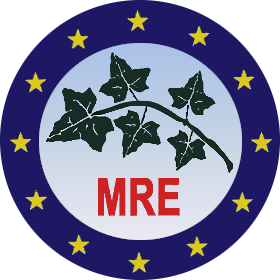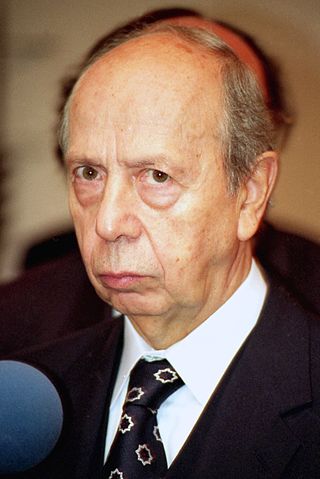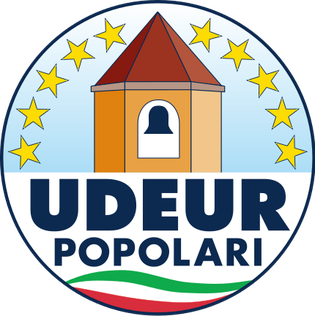
The Democrats of the Left was a social-democratic political party in Italy. Positioned on the centre-left, the DS, successor of the Democratic Party of the Left (PDS) and the Italian Communist Party, was formed in 1998 upon the merger of the PDS with several minor parties. A member of The Olive Tree coalition, the DS was successively led by Massimo D'Alema, Walter Veltroni, and Piero Fassino, and merged with Democracy is Freedom – The Daisy and a number of minor centre-left parties to form the Democratic Party in October 2007.

The Union of the Centre, whose complete name is "Union of Christian and Centre Democrats", is a Christian-democratic political party in Italy. Lorenzo Cesa is the party's current secretary; Pier Ferdinando Casini was for years the most recognisable figure and de facto leader of the party, before eventually distancing from it in 2016. The UdC is a member of the European People's Party (EPP) and the Centrist Democrat International (CDI), of which Casini was president from 2004 to 2015.

The European Republicans Movement is a minor social-liberal political party in Italy.

Democracy is Freedom – The Daisy, commonly known simply as The Daisy, was a centrist political party in Italy. The party was formed from the merger of three parties within the centre-left coalition: the Italian People's Party, The Democrats and Italian Renewal. The party president and leader was Francesco Rutelli, former mayor of Rome and prime ministerial candidate during the 2001 general election for The Olive Tree coalition, within which The Daisy electoral list won 14.5% of the national vote.

Lamberto Dini is an Italian politician and economist. He was the Director General of Bank of Italy from 1979 to 1994, Minister of Treasury from 1994 to 1996, the 51st Prime Minister of Italy from 1995 to 1996, and Foreign Minister from 1996 to 2001.
Liberalism and radicalism have played a role in the political history of Italy since the country's unification, started in 1861 and largely completed in 1871, and currently influence several leading political parties.

Pier Ferdinando Casini is an Italian politician. He served as President of the Chamber of Deputies from 2001 to 2006.

The Democratic Alliance was a social-liberal political party in Italy.

The Italian People's Party was a Christian-democratic, centrist and Christian-leftist political party in Italy. The party was a member of the European People's Party (EPP).

The Democrats was a centrist and social-liberal political party in Italy.

Italian Renewal was a centrist and liberal political party in Italy.
The United Consumers was a political party in Italy led by Bruno De Vita.

The Democratic Party is a social-democratic political party in Italy. The party's secretary is Elly Schlein, elected in the 2023 leadership election, while the party's president is Stefano Bonaccini.

The Liberal Democrats, whose complete name is Liberal Democrats for Renewal, is a liberal and centrist political party in Italy.
The Olivists (Ulivisti) are a faction within the Democratic Party (PD), a political party in Italy.
The Free Democrats were the centrist faction within the Democratic Party (PD), a political party in Italy, around Francesco Rutelli, former leader of Democracy is Freedom – The Daisy, one of the two main parties that merged to form the PD in 2007.

Alliance for Italy was a centrist political party in Italy.

The Union of Democrats for Europe, also known as UDEUR Populars, was a minor centrist, Christian-democratic political party in Italy.

Democratic Centre is a centrist, Christian leftist and social-liberal political party in Italy. Most of its members, including its leader Bruno Tabacci, are former Christian Democrats.
The centre-left coalition is a political alliance of political parties in Italy active under several forms and names since 1995, when The Olive Tree was formed under the leadership of Romano Prodi. The centre-left coalition has ruled the country for more than fifteen years between 1996 and 2022; to do so, it had mostly to rely on a big tent that went from the more radical left-wing, which had more weight between 1996 and 2008, to the political centre, which had more weight during the 2010s, and its main parties were also part of grand coalitions and national unity governments.















